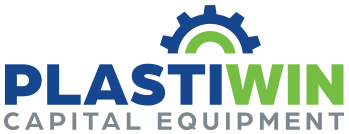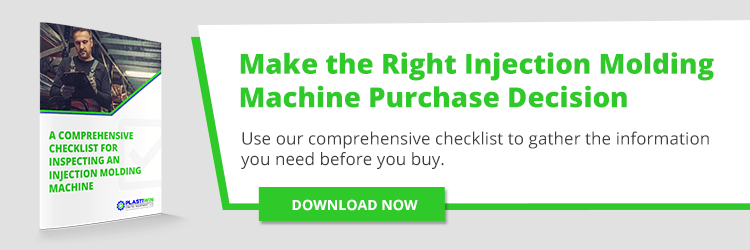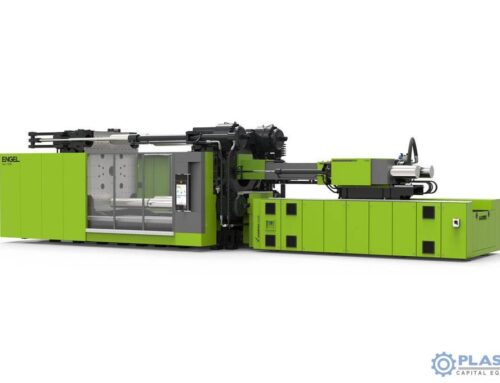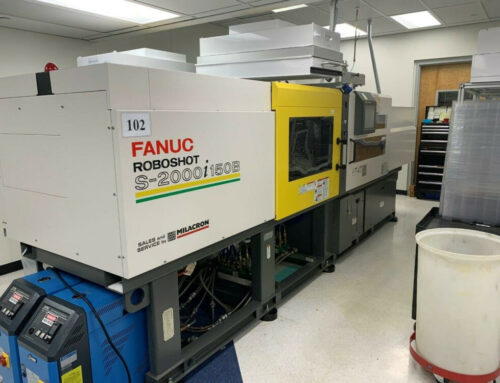Once you’ve decided that your business needs a particular piece of equipment and you’re ready to make a purchase, the next question becomes: “Where should I buy it from?”
There are two main options: one is locating an equipment dealer, walking into their warehouse, and purchasing the piece of equipment brand new, and the other is turning to used machinery brokers. There are several advantages to each, as well as some disadvantages to consider before making a decision. That’s why we’ve broken down a few key differences between a machine broker vs dealer. Let’s get started with the basics.
What is a Broker?
The dictionary definition of a broker is, “An agent who buys or sells for a principal on a commission basis without having title to the property.” There are many types of broker dealers, but used machinery brokers are essentially the middlemen between individuals or companies looking to sell their equipment and those looking to buy it. They provide value by offering a service that goes far beyond the physical product they are dealing with. How?
A broker isn’t just selling used machinery—they take care of everything from initially sourcing the equipment to handling the financing, shipping, and fund transfers. This means you can continue running your day-to-day business operations without having to dedicate time towards finding the equipment yourself. A lower price tag compared to brand new equipment, plus room for further negotiation, is another advantage of turning to used machinery brokers.
What is a Dealer?
An equipment dealer is a professional that typically works out of an office or warehouse and has an inventory of new equipment. Similar to a car dealership, there are equipment dealerships with used options as well, and you’d simply have to go to that particular department to work with a dealer who specializes in selling used machinery.
Working with a dealer has several advantages, which can include reliability and more robust warranty options. However, new equipment carries a hefty price tag, so deciding between broker vs dealer often comes down to price for many businesses. However, here’s three more major differences to consider that go beyond just cost.
Broker vs Dealer Difference #1: The Customer Experience
Overall, used machinery brokers are going to be more customer-service oriented than dealers. From the minute a customer reaches out to them, they will cater to their specific needs and do extensive research to find the equipment that best meets those needs. Brokers have a vast network of contacts that makes it easy for them to source various options that they can then compare and contrast on your behalf. This way, they can find the best match based on a variety of factors, such as the equipment’s location, price, and capabilities. When equipment options are located nearby, a buyer could even potentially go see the machinery under power and running parts during the inspection. This allows them to speak to the seller and ask any questions they may have about maintenance, pros and cons of the machine, production rates, scheduled run times, cycle times, etc. This can make the buyer more confident and comfortable with their decision. Additionally, similar to real estate, a broker’s experience and expertise helps to remove any tedious or emotional aspects of the transaction. It’s typically easier and faster for the buyer and seller to come to an agreement and move the transaction along with a broker acting as the middleman.
On the other hand, customers purchasing from an equipment dealer will probably have a very different experience. Dealers don’t typically go out and look for equipment on your behalf—you have to go to them. They also aren’t likely to conduct further research and lay out all possible options across different brands and locations, but rather will only present the options they have themselves. Dealers will have a wealth of information about the specific brands they carry, so if that specific brand is what you’re interested in, then this will be valuable to you. If it isn’t, they probably won’t be too willing to direct you to a competitor. The key takeaway: brokers can provide a more convenient customer experience by going out and finding your equipment on your behalf, whereas with dealers, you typically have to go to the source yourself.
Broker vs Dealer Difference #2: Stock Limitations
Used machinery brokers can offer you an enormous selection of equipment to choose from. The broker market is not geographically limited—as long as the customer is willing to wait for and pay for shipping, they can source equipment from basically anywhere. A machinery broker’s equipment can come from sources such as private sellers, dealerships, banks, or auctions. Additionally, without ties to any specific manufacturer, the broker has access to whatever brand you want, not just the ones they sell. When they aren’t looking to meet quotas for a particular model or please a certain partner with high performance, they are able to offer you more unbiased opinions and information.
An equipment dealer, however, will often partner with certain manufacturers and are limited by the stock that they have space to keep on hand. While some may be willing to put an order through even if the equipment is on backorder or temporarily out of stock, you could then be waiting months to have it on hand. If the dealer cannot fill your need with their inventory and you’re not open to sourcing equipment from other places, you may be forced to settle. Depending on where your business is located, there may not be a lot of other dealers to go to in your area, which further minimizes your options in this scenario. The key takeaway here? A broker will find what you want for you, but with a dealer, they’ve got what they’ve got.
Broker vs Dealer Difference #3: The Shipping and Payment Process
If you’re working with a broker and identified the piece of equipment you want to buy, they would then invoice the seller and handle the actual financial transaction. Brokers are typically able to take many forms of payment, including credit card transactions and wire transfers—it is the broker’s job to make these arrangements, which frees up time for both the buyer and the seller. The broker will also work out shipping costs and timelines. A potential disadvantage here is that a machinery broker’s equipment could be sourced from anywhere, so shipping processes won’t always be uniform as they’re dependent on the seller and their location.
With an equipment dealer, there is oftentimes immediate gratification—you may even be able to walk into a dealership and drive off with a new machine that day. Even if not, if you’re able to work in-person with a dealer in your area, shipping costs (if any) and timelines will be expedited. When a dealership is close to you, you can simply go pick up the equipment when it is ready or pay very minimal local shipping costs. You would make a direct payment to the dealer, and they often offer financing options and extended warranties, which can be a major advantage of purchasing equipment this way. What’s the key takeaway? Brokers can offer more flexible shipping and payment methods, but timelines may be slowed down based on the location and preferences of the seller. With dealers, payment and shipping is a more direct, expedited process—which is right for you will depend on your budget, how soon you need the equipment, and your personal preferences.
PlastiWin can Help you Make a Well-Informed Equipment Purchase Decision
At PlastiWin Capital Equipment, LLC, we offer more than 35 years of combined experience paired with outstanding customer service. With competitive pricing, we’re able to meet any customer’s budget constraints and unique needs. As one of North America’s top plastic, chemical, and rubber processing equipment suppliers, we provide both new machinery as well as quality used processing equipment.
Are you looking to sell your used machinery or source new or used equipment for your business? Are you simply looking for more guidance when it comes to identifying your equipment needs? Reach out to our team of experts today to learn more about our plastic machinery and equipment solutions!





